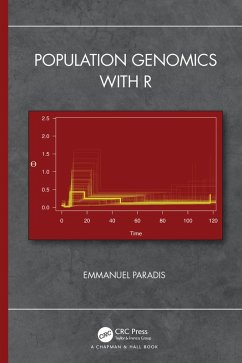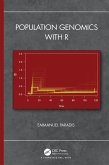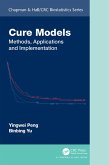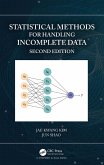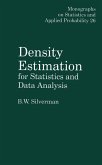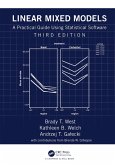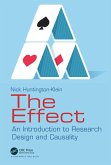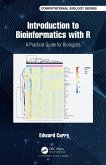This book provides a reference on modern statistical and data exploration methods for the population genomics. It covers a wide range of methods within the R computing environment. The readers will be assumed to have basic knowledge in population genetics, computational methods, and statistics, although some basic principles will be explained.
Dieser Download kann aus rechtlichen Gründen nur mit Rechnungsadresse in A, B, BG, CY, CZ, D, DK, EW, E, FIN, F, GR, HR, H, IRL, I, LT, L, LR, M, NL, PL, P, R, S, SLO, SK ausgeliefert werden.
"The author has taken good care of including several important as well as emerging topics (data acquisition, next generation sequencing) that would be extremely useful for the readers. suggest that this book be targeted to graduate students and researchers who have some background in basic genetics or are taking a graduate level population genetics course...The data acquisition chapter, descriptions of DNA sample quality, and file formats are the strengths. Case studies are very valuable and would provide more "hands-on" training on working on specific population genetics problems."
-Santhosh Girirajan, Pennsylvania State University
"The strength of those chapters is to provide a global coverage of the field of population genetics based on a broad spectrum of statistical methods. The author proposes to deal with population genetic analyses in a unified programming framework that uses specific classes of the R packages ape/pegas and adegenet, and I was impressed by the work done."
-Oliver Francois, University Grenoble Alpes
"This book could serve as both a reference book and a textbook. Population genetics, applied bioinformatics, genomics, molecular ecology, and conservation genetic classes with a lab component at both undergraduate and graduate levels could teach from this text. Graduate students and possible postdocs in evolutionary biology and applied bioinformatics could use this as a reference. Additionally, government and non-profit organizations that process genetic samples for conservation and management purposes would find this instruction useful. ...What this text offers is unique in that it is focused on practical steps to analyze data using already available programs that users can install...Given the variety of subjects and types of analyses, I think it could be a valuable resource for many students."
-Sarah Hendricks, San Diego Zoo Institute for Conservation Research
"The book is a pearl among the plethora of related books: it is easy to follow, with well-motivated sections, and competently written. Each chapter is rounded up with a set of tasks/exercises to deepen and check the understanding of the skills and knowledge transferred in the corresponding chapter and all the required and important literature is cited to help the reader to dive deeper into the field of personal preference. The book has the right ratio of theoretical background information with references to relevant articles and has exceptionally good to follow examples and coding sections that can be used also by beginners to start analysing their own datasets by just following the complete examples and case studies. Overall, this is a highly recommended book to everyone in the field, beginners and advanced readers alike."
-Daniel Fischer, in International Statistical Reviewi, March 2022
-Santhosh Girirajan, Pennsylvania State University
"The strength of those chapters is to provide a global coverage of the field of population genetics based on a broad spectrum of statistical methods. The author proposes to deal with population genetic analyses in a unified programming framework that uses specific classes of the R packages ape/pegas and adegenet, and I was impressed by the work done."
-Oliver Francois, University Grenoble Alpes
"This book could serve as both a reference book and a textbook. Population genetics, applied bioinformatics, genomics, molecular ecology, and conservation genetic classes with a lab component at both undergraduate and graduate levels could teach from this text. Graduate students and possible postdocs in evolutionary biology and applied bioinformatics could use this as a reference. Additionally, government and non-profit organizations that process genetic samples for conservation and management purposes would find this instruction useful. ...What this text offers is unique in that it is focused on practical steps to analyze data using already available programs that users can install...Given the variety of subjects and types of analyses, I think it could be a valuable resource for many students."
-Sarah Hendricks, San Diego Zoo Institute for Conservation Research
"The book is a pearl among the plethora of related books: it is easy to follow, with well-motivated sections, and competently written. Each chapter is rounded up with a set of tasks/exercises to deepen and check the understanding of the skills and knowledge transferred in the corresponding chapter and all the required and important literature is cited to help the reader to dive deeper into the field of personal preference. The book has the right ratio of theoretical background information with references to relevant articles and has exceptionally good to follow examples and coding sections that can be used also by beginners to start analysing their own datasets by just following the complete examples and case studies. Overall, this is a highly recommended book to everyone in the field, beginners and advanced readers alike."
-Daniel Fischer, in International Statistical Reviewi, March 2022

